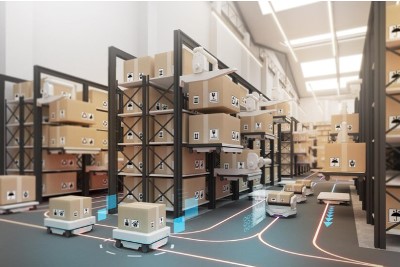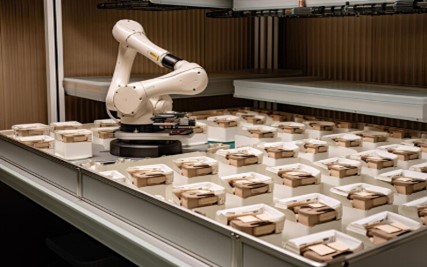
Innovations in Halal Processing: The Robotic Advantage
In today's rapidly evolving food industry, meeting the stringent requirements of Halal certification is crucial for businesses catering to Halal consumers. However, navigating this complex landscape comes with its fair share of challenges. That's where robotics come in as a game-changer, revolutionizing Halal processing like never before. By seamlessly blending technology and tradition, robots are proving to be a powerful ally in ensuring compliance while enhancing efficiency and quality.
Challenges Faced in Traditional Halal Processing Methods
1. Lack of Automation: The absence of automated equipment in traditional methods can lead to inconsistencies in processing, making it harder to maintain uniform quality and standards.
2. Skilled Labor: Traditional Halal processing requires skilled butchers and workers who are knowledgeable in the Halal requirements, which can be difficult to find in some regions.
3. Slow Production Speed: Traditional methods may result in slower production speeds, limiting the ability to meet high demand for Halal products.
4. Inconsistent Halal Certification: Traditional methods may not always have a standardized process for obtaining Halal certification, leading to potential discrepancies in product compliance.
5. Hygiene and Food Safety: Ensuring high levels of hygiene and food safety can be challenging in traditional processing facilities, leading to potential health risks.

6. Lack of Traceability: Traditional methods may have limited traceability systems, making it challenging to track the origins of the products and ensure transparency.
7. Consumer Trust: Some consumers may question the legitimacy of Halal products processed using traditional methods, impacting trust and market acceptance.
8. Limited Scalability: Traditional processing methods may be less adaptable to increasing production requirements and market expansion.
The Rise of Robotic Technology in the Halal Industry
The Halal industry has adopted robotics to overcome traditional processing challenges. Robots bring efficiency, accuracy, and consistency, handling repetitive tasks with precision to ensure strict Halal compliance. Through programming, robots can perform precise slaughtering, minimizing errors and adhering to Halal standards. Robotic arms and sensors automate the entire process, reducing manual labor dependency and human error risk.
Advantages of Using Robots for Halal Processing
The implementation of robotic technology in Halal processing brings numerous advantages for Halal certification bodies, businesses, and consumers. Some of the key advantages include:
1. Enhanced Efficiency and Productivity
Robots can perform tasks at a much faster pace than humans, leading to increased efficiency and productivity in Halal processing. They can work continuously without fatigue or breaks, ensuring a consistent and uninterrupted production flow. This not only speeds up the processing time but also allows businesses to meet the growing demand for Halal products.

2. Robotics in Food Handling and Packaging
Food handling and packaging are areas where robotics can make a significant impact in Halal processing. Robots can be programmed to handle and package Halal-certified products, ensuring hygiene and preventing cross-contamination. They can accurately sort and segregate products based on various criteria, such as Halal certification, expiry dates, and quality control. Robotic systems equipped with vision sensors and grippers can identify and handle products with precision, reducing the risk of errors and enhancing the efficiency of the packaging process.
3. Robotics for Quality Control and Inspection
Quality control and inspection are vital in Halal processing to meet required standards. Robotic systems offer unparalleled precision and efficiency in these tasks. Integrated with vision systems, they detect defects, like discoloration and foreign particles, and ensure proper packaging. These systems also verify Halal certification labels, enhancing reliability and accuracy, while ensuring compliance with Halal requirements, ultimately elevating the quality and trustworthiness of Halal-certified products.
4. Minimized Cross-Contamination Risks
Cross-contamination is a significant concern in the Halal industry, as it compromises the Halal status of products. Robots can play a crucial role in minimizing cross-contamination risks by ensuring strict separation between Halal and non-Halal processing lines. With their precise movements and sensors, robots can detect and prevent any contact between the two, maintaining the purity of Halal products.

5. Streamlined Certification Process
Robotic technology can streamline the Halal certification process by automating various tasks and reducing manual intervention. Robots can analyze data, perform inspections, and generate reports, saving time and resources for Halal certification bodies. This automation ensures a standardized and efficient certification process, enabling businesses to obtain Halal certification more quickly and easily.
6. Labor Savings
Automating various tasks in Halal processing reduces the reliance on manual labor. This, in turn, can lead to cost savings in terms of labor expenses and training. Companies can reallocate their workforce to roles that require human expertise, supervision, or tasks that are less suited for automation.
Implementation of Robotics in Halal Certification and Traceability
The integration of robotics in Halal certification and traceability is still a work in progress to learn and apply as it adds an extra layer of assurance to the Halal industry. By leveraging these emerging technologies the entire process of Halal certification can be enhanced:
1. Blockchain for Enhanced Transparency and Trust
Blockchain technology bolsters transparency and trust in Halal certification. Certification bodies can establish a decentralized, immutable ledger to authenticate Halal products. This ledger records ingredient sources, production, and logistics data, ensuring supply chain transparency. Consumers can readily access this information, enabling informed purchasing decisions, and ultimately, reinforcing trust in Halal products.

2. Artificial Intelligence for Efficient Audits and Analysis
Artificial intelligence (AI) can be utilized to streamline the auditing and analysis processes in Halal certification. AI algorithms can analyze vast amounts of data, identify non-compliance issues, and flag potential risks. AI reduces the time and effort required for audits, while ensuring accuracy and consistency in assessing and certifying products and services. AI can also assist in analyzing ingredients, monitoring production processes, and identifying cross-contamination risks, further enhancing the certification process.
3. Internet of Things for Real-time Monitoring
IoT empowers real-time monitoring and control in Halal certification. IoT devices, equipped with sensors, track parameters like temperature and humidity in the Halal supply chain. Continuous monitoring guarantees adherence to Halal requirements at all stages, from sourcing to storage. Any deviations trigger immediate corrective actions, minimizing non-compliance risks and enhancing the integrity of Halal certification.
Understanding the Challenges and Solutions in Robotic Halal Processing
While the implementation of robotic technology brings numerous advantages to Halal processing, it also poses specific challenges that need to be addressed. Some of the key challenges include:
1. Technical Expertise
Implementing robotic technology requires technical expertise in areas such as robotics, automation, and data analysis. Halal certification bodies and businesses need to invest in training their workforce or collaborating with experts in the field to ensure successful implementation.

2. Investment Costs
The adoption of robotic technology involves significant investment costs, including the purchase of robots, installation of necessary infrastructure, and integration with existing systems. Halal certification bodies and businesses need to carefully evaluate the return on investment and consider long-term benefits before implementing robotic solutions.
3. Standardization of Implementation
To achieve maximum benefits from robotic technology in Halal processing, standardization of implementation is crucial. Collaboration between Halal certification authorities, technology providers, and businesses is necessary to develop standardized guidelines, protocols, and certifications. This ensures consistent and harmonized implementation across different regions and certification bodies.
Future Trends: Robotics and Halal Processing
The future of Halal processing is closely intertwined with robotics and emerging technologies. As technology continues to advance, we can expect further innovations in robotics that will enhance the Halal certification process. Machine learning algorithms can be integrated with robotic systems to continuously improve accuracy and efficiency.
Robotics has emerged as a transformative force in Halal processing, revolutionizing the industry and ensuring the integrity and authenticity of Halal certification, from packaging to quality control robots provide the speed and precision required to meet the increasing demands of the Halal industry while maintaining the highest standards of Halal compliance. As the industry continues to evolve, embracing robotics and emerging technologies will be crucial in meeting the challenges and opportunities of the Halal industry. By working together, stakeholders can unlock the full potential of robotics and ensure the continued growth and success of the Halal industry.
Islamic Services of America (ISA) is a leading USA based Halal Certification and auditing organization serving companies, the community, and the Halal industry for nearly 50 years. Contact ISA at isa@isahalal.com or visit the ISA website for more information at https://www.isahalal.com/